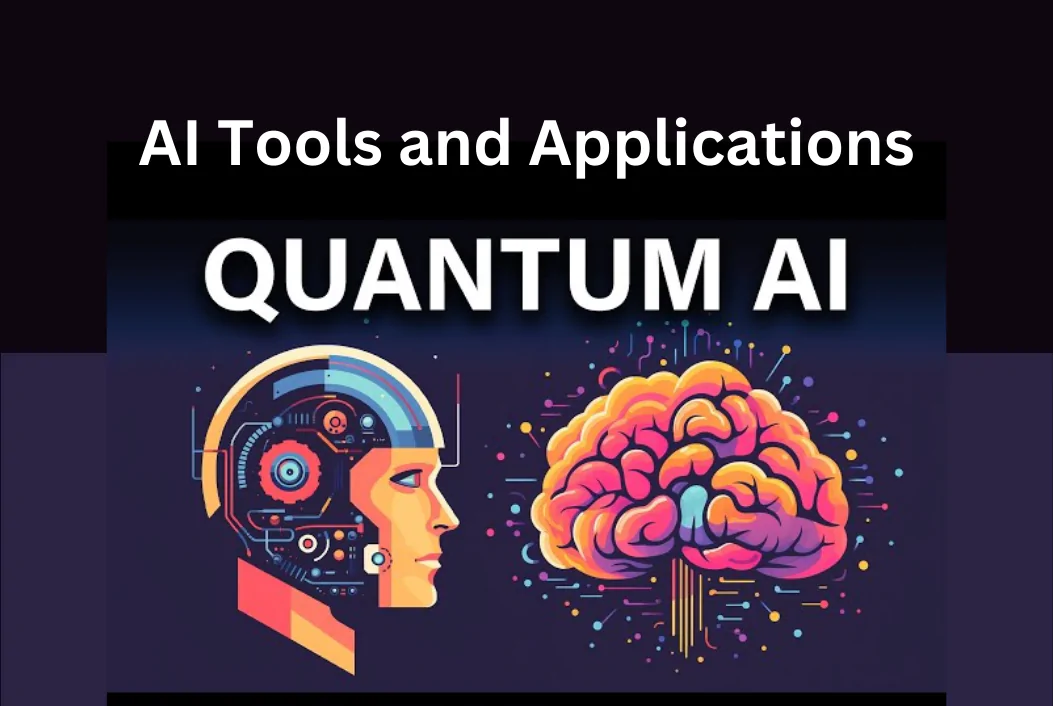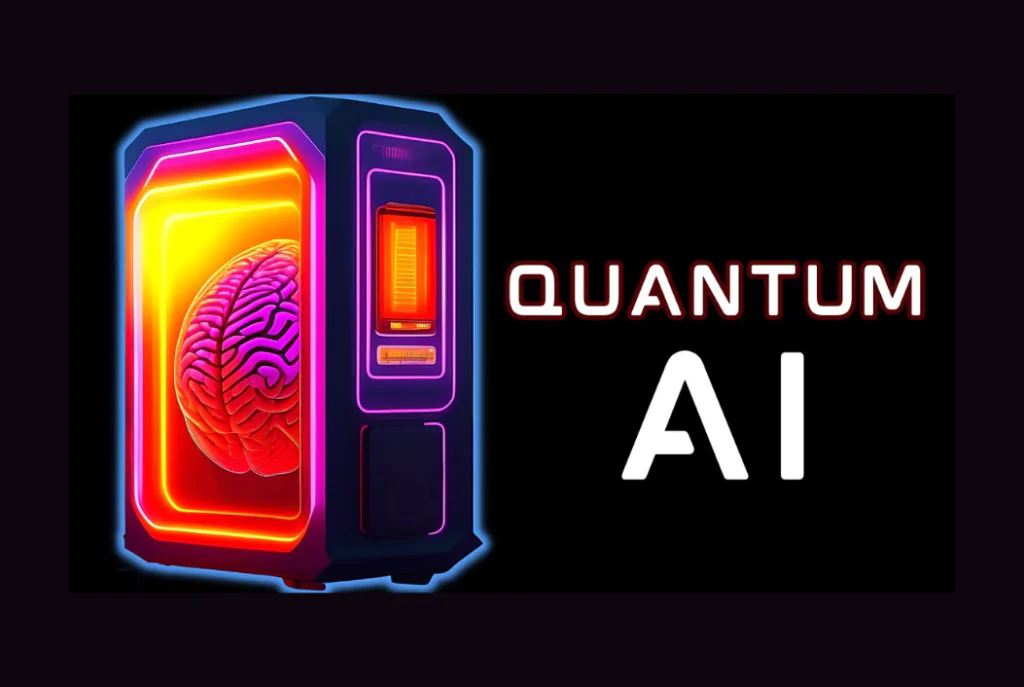Have you ever pondered the limits of current artificial intelligence (AI) technologies? While classical AI has made incredible strides in recent years, its computational limitations are becoming increasingly apparent. Enter Quantum AI, a groundbreaking solution that leverages the principles of quantum mechanics to overcome these barriers. This emerging field promises to revolutionize industries by offering a new generation of AI tools capable of tackling problems beyond the reach of traditional algorithms. Our journey today will explore how Quantum AI stands poised to redefine what’s possible, marking a significant leap forward for those in search of the next generation of AI tools.
What is Quantum AI?
Quantum AI is an innovative system which uses quantum computing and artificial intelligence to investigate financial data and predict market trends. It employs sophisticated algorithms to identify patterns and trends by first breaking complex data down into smaller components.
Quantum AI Explained

In simple terms, Quantum AI integrates the perplexing yet potent principles of quantum computing with artificial intelligence. Unlike classical AI, which operates on bits (0s or 1s), Quantum AI utilizes qubits. These qubits can exist in a state of 0, 1, or both simultaneously, thanks to a phenomenon known as superposition. Additionally, through another quantum principle called entanglement, qubits can be interconnected in ways that allow information to be processed in a highly complex, multidimensional manner. This quantum leap enables Quantum AI to solve intricate problems more efficiently than ever before.
Advantages of Quantum AI Over Classical AI
Quantum AI shines in several key areas:
- Speed and Efficiency: Quantum AI can process vast datasets at speeds unattainable by classical computers.
- Complex Problem Solving: Thanks to superposition and entanglement, it excels at navigating problems with numerous variables and potential outcomes, such as optimizing logistics or drug discovery.
For instance, in tasks like simulating molecular structures for drug development, classical computers struggle to manage the exponential scale of possible interactions. Quantum AI, however, can evaluate multiple configurations simultaneously, drastically reducing computation time.
Quantum AI Tools and Applications

Several Quantum AI tools are either in development or available, showcasing the potential of this technology:
- Quantum Machine Learning Algorithms: These are designed to enhance predictive analytics and data classification, with applications in finance for risk assessment and in healthcare for diagnostic accuracy.
- Quantum Optimization Tools: Ideal for logistics and supply chain optimization, providing solutions to complex routing problems that could save industries billions annually.
- Quantum Encryption Services: Offer unprecedented security measures for cybersecurity, making data breaches theoretically impossible.
Industries like healthcare could see revolutionary advancements in personalized medicine, while finance could witness unparalleled accuracy in market predictions. Theoretically, Quantum AI could manage urban traffic flows in real-time, minimizing congestion and pollution.
Real World Applications of Quantum AI
The field of Quantum AI, which emerged from the nexus of quantum computing and artificial intelligence, has great potential for resolving complicated issues that were previously thought to be unsolvable by conventional computing techniques. We are seeing the emergence of practical uses for quantum technologies, which have the potential to transform entire industries and fundamentally alter how we think about computation.
-
Financial Modeling and Risk Analysis
Through the efficient processing of large datasets and the optimisation of risk analysis, quantum AI can improve financial modelling. In the volatile world of finance, it facilitates better decision-making, better portfolio management, and more accurate forecasting.
-
Secure Communication with Quantum Cryptography
Cryptography also undergoes a paradigm shift as a result of quantum computing. By utilising the ideas of quantum mechanics, quantum key distribution (QKD) establishes a secure communication channel that is impervious to conventional cryptographic attacks in theory. Quantum AI is essential in creating and applying quantum-resistant cryptography methods to safeguard communication in the quantum era as the threat landscape changes.
-
Machine Learning Acceleration
Machine learning algorithms stand to benefit greatly from the application of quantum AI, especially when dealing with complicated pattern recognition and large datasets. Algorithms for quantum machine learning are capable of delivering faster and more accurate results than their classical counterparts. Applications such as image recognition, natural language processing, and personalized recommendation systems may be affected by this.
-
Climate Modeling and Environmental Research
In order to address global issues like climate change, complex modelling and simulations are needed. By offering more precise and effective simulations of intricate environmental systems, quantum AI can make a contribution. This makes it possible for researchers to learn more about the patterns of the climate, forecast environmental changes more precisely, and investigate viable ways to lessen the effects of climate change.
Challenges and Ethical Considerations
Despite its potential, Quantum AI faces significant hurdles. The technology requires advanced quantum computers, which are not yet widely available or scalable. Additionally, developing algorithms that can leverage quantum computing’s complexity remains a challenge. Ethically, there’s the concern of data privacy and security, as quantum computing could render current encryption methods obsolete. It’s crucial that the development and deployment of Quantum AI proceed with careful consideration of these impacts.
The Future of Quantum AI
Quantum AI is the future of artificial intelligence, which combines sophisticated machine learning algorithms with quantum computing power to enable previously unattainable levels of data analysis, problem solving, and decision making. because of its capacity to investigate several options and handle enormous volumes of data at once.
As we stand on the brink of this technological revolution, the future of Quantum AI appears both promising and challenging. Continued research and development could see Quantum AI becoming a staple in solving some of the world’s most complex problems. Staying informed and engaged with these advancements will be crucial for leveraging its potential responsibly.
Conclusion
Quantum AI represents a significant evolution in the landscape of artificial intelligence tools. Its ability to process information in fundamentally new ways offers the promise of tackling problems that have long been considered intractable. As we continue to explore and develop these technologies, the potential for transformative change across all sectors of society is immense. We invite you to join us on this exciting journey, whether through further research, discussion, or by following the rapid advancements in Quantum AI technology.
FAQ
-
What is Quantum AI?
Quantum AI combines quantum computing with artificial intelligence, utilizing the principles of quantum mechanics to process information in revolutionary ways.
-
How does Quantum AI differ from classical AI?
Unlike classical AI, which uses bits, Quantum AI operates with qubits. These can exist in multiple states at once, allowing Quantum AI to process complex problems more efficiently.
-
What are some applications of Quantum AI?
Applications range from drug discovery and personalized medicine in healthcare to optimization problems in logistics and secure communications in cybersecurity.
-
What challenges does Quantum AI face?
Key challenges include the development of scalable quantum computers, creating sophisticated algorithms, and addressing ethical concerns related to data privacy and security.


